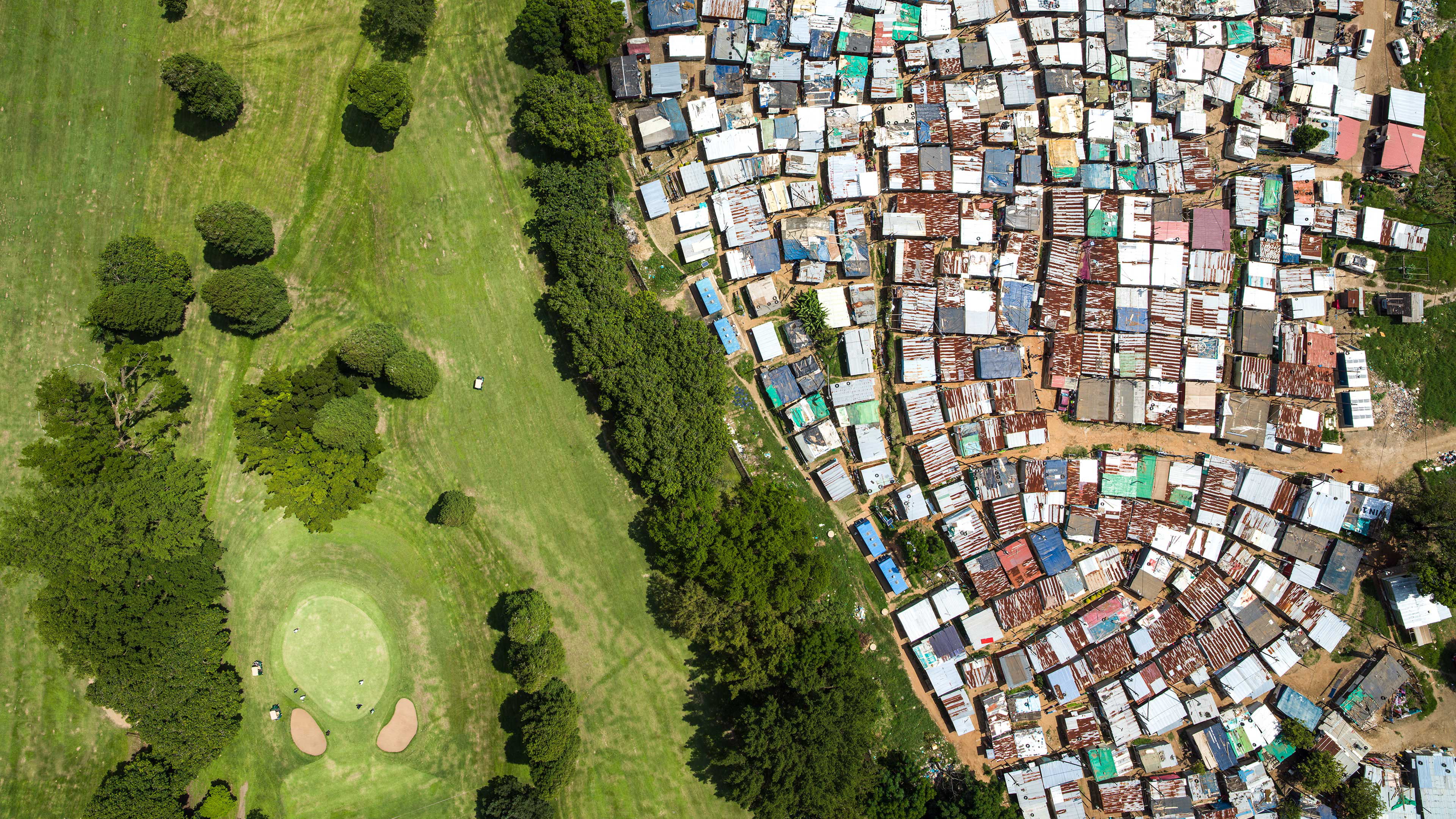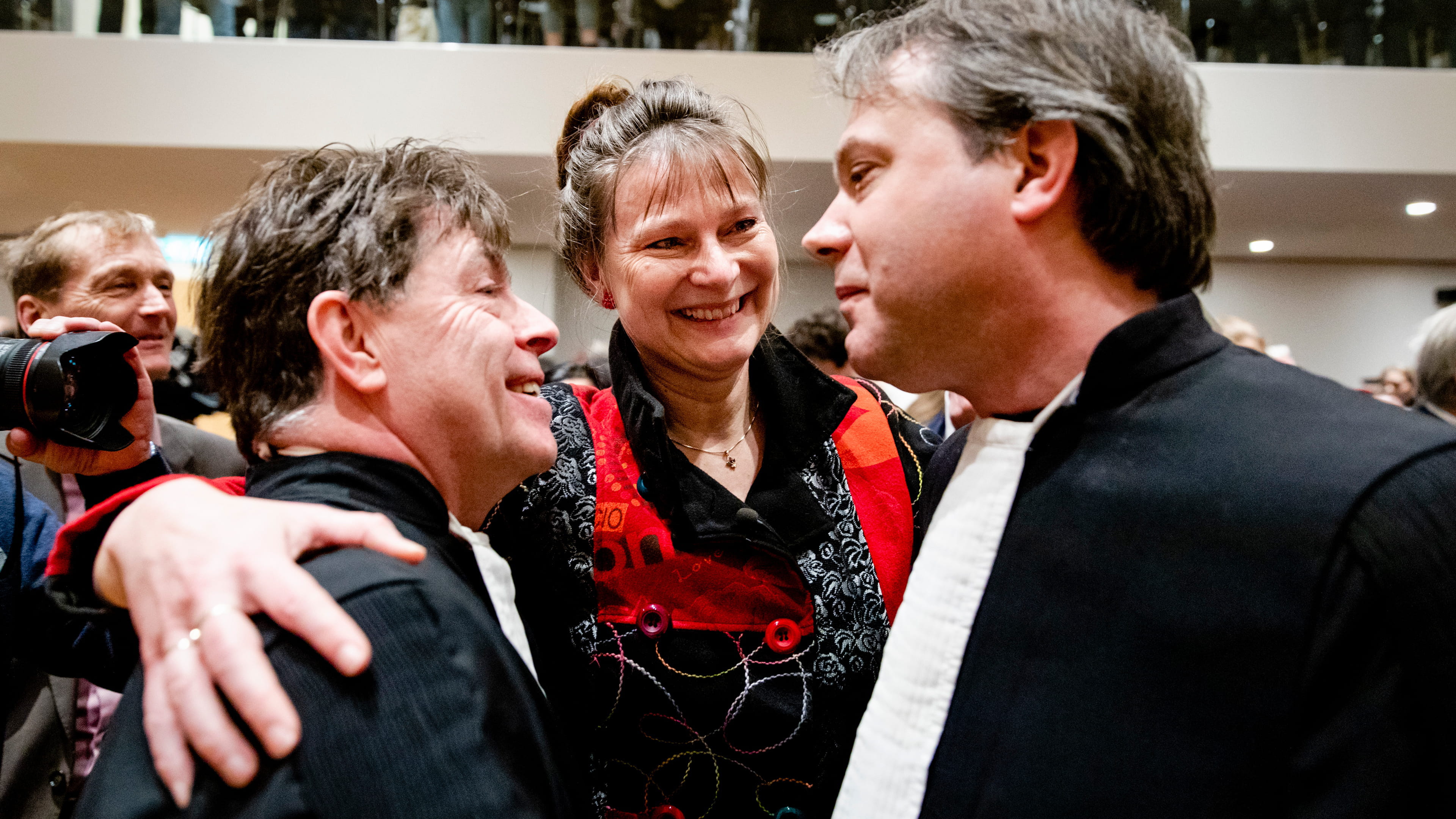After Covid-19 blew a crown-shaped hole in the world economy, it became clear that this was not only a disaster but also an opportunity. I know that may sound cruel given all the human suffering, but it’s true.
With every major economic sector in need of government assistance, we have a unique chance to direct emergency spending to fast-track climate action. This is our chance to re-build a better economy, creating millions of green jobs and countless health benefits along the way.
We are squandering that chance. In fact, the current coronavirus emergency spending will make climate change even worse.
Whether you look at the flow of money from stimulus packages, it’s clear that we are saving the old, fossil-fuelled economy. This is reflected in the terms and conditions imposed on companies in exchange for receiving financial assistance from governments, and the fact the European Central Bank has spent over €7bn on bond purchases in oil companies like Shell.
A recent assessment by Bloomberg New Energy Finance, summarised here by the Guardian, found that “more than half a trillion dollars worldwide is to be poured into high-carbon industries, with no conditions to ensure they reduce their carbon output. Only about $12.3bn is to go towards low-carbon industries, such as renewable energy.”
This is not only foolish – it’s also bad business. Investing in a green economy produces much better returns on government spending.
And investing in fossil fuels is the opposite of what people want.
In a survey conducted across 14 countries globally in April 2020, 65% of respondents agreed that “in the economic recovery after Covid-19, it’s important that government actions prioritise climate change”.
So why are people not getting the green recovery they want? Why do democratic societies find it so hard to translate the reality of climate change into effective policy? Especially when given a once-in-a-lifetime opportunity to do so?
The answers lie in the messiness of contemporary democracy, the uncompromising nature of climate change and the chasm between them.
Discuss these ideas with climate and democracy experts!
The climate does not forget
Climate change is an extraordinarily political problem. It’s different from, for example, economic inequality which waxes and wanes, surging for decades and then ebbing away again when people conclude that too much inequality is a bad idea. Historically, when that happens, the rich have been taxed more heavily, wealth is redistributed and the pendulum swings back towards a more egalitarian society. That’s possible. It’s not happening right now, but it’s possible.
Climate is fundamentally different because the global warming we are currently causing is irreversible, at least on human timescales.
The polar ice caps, currently vanishing, are not going to come back again. Carbon dioxide that has been absorbed by the oceans, turning the seawater increasingly acidic, cannot easily be extracted again.
If the sea level rises too much, there are no measures you can implement to swing the pendulum in the opposite direction. Higher sea levels cannot be reversed, full stop.
In other words: the climate does not negotiate with us. It hears nothing and responds to only one signal: the accumulated atmospheric concentration of CO2 and other greenhouse gases. That concentration determines how much heat is trapped inside the Earth’s atmosphere.
The more greenhouse gases we emit, the more our climate heats up, accelerating the pace of melting ice caps and rising sea levels, intensifying the disruptive consequences for people, animals and nature.
So there’s no way out. No technological fix? No. There’s no technology or policy trick that can undo the 42bn tonnes of CO2 that people are adding to the atmosphere almost every year.
It’s true we can mitigate the damage by planting new forests to capture CO2. At some point in the future we may be able to install air scrubbers to filter gas out of the air. Researchers are exploring whether we could spray sulphur particles into the atmosphere in order to block some of the sun’s rays and cool down the planet.
To some extent, such strategies could work – but even if they do, they would have a limited impact.
Even if we planted new forests on a massive scale right now, they would compensate for only a minor percentage of overall emissions. Many other mitigation technologies to target global warming are still in their infancy, and extremely expensive to boot. Maybe CO2 air scrubbers will become affordable within the next decade or so, maybe they won’t. More certain is that blocking out the sun’s rays would have huge negative side-effects.

Given our current level of technological progress, the predicament is simple. Almost all the warming that we are causing now will be impossible for our children to “erase”. They’re going to be stuck with it. That’s the hard, cold logic of climate science, and it’s important to comprehend how inhuman this inexorable logic is.
We’re used to being able to make things right.
If I say something mean to my mother today, I can apologise to her tomorrow, or bring a bouquet of flowers to show that I’m sorry. The climate is immune to such compensatory logic (and not just because shipping flowers all over the globe isn’t good for the climate). If I emit one tonne of CO2 today, I can plant a tree tomorrow, but it will take years for that tree to reach maturity and recapture the carbon I blew into the air.
The atmosphere is the collective memory of our cumulative emissions: it does not forget.
That’s why climate change isn’t actually a crisis. Covid-19 is a crisis – something that we experience, pass through and hope to recover from. But human actions already have caused global temperatures to rise by more than a degree – resulting in massive damage. The climate is changed for ages to come, and its transformation continues as you read these words.
Even if we could wave a magic wand and end all CO2 emissions tomorrow, in a thousand years’ time 15 to 40% of the CO2 we have produced will still be in the air. It will be thousands of years before nature can eliminate all those greenhouse gases, about the same period of time that it takes radioactive waste to become harmless.
The relentless nature of the climate is also the reason why climate targets set by politicians (“a maximum temperature increase of 1.5 degrees”) are always translated by scientists into dictates (“cut emissions in half by 2030”).
Once you set a target like that, there aren’t other alternatives or variants. You absolutely have to reduce emissions by a set proportion, in order that greenhouse gas concentrations won’t exceed a certain limit. If you don’t take “the necessary measures”, then you’ll overshoot your target and the Earth will heat up more than you planned.
No wonder people who embrace this logic are viewed as “pushy”. They are adamant. In many cases, consciously so. As Greta Thunberg said last year when she was given the chance to address the US Congress: “I know you are trying, but just not hard enough. Sorry.”
Democracies have difficulty with the climate’s hard, cold logic
The implacability of the climate may be a challenge, but this is hugely problematic for democratic societies. The laws of nature don’t exactly rule in democracies. Laws of money tend to have more say.
We all know that US elections are bought, while “the UK is a democracy only in the weakest and shallowest sense”, according to George Monbiot. In most democracies, people have very little say in policymaking. Climate policy remains a divisive issue, with politicians exaggerating their differences of opinion for electoral gain.
But even a well-functioning democracy has features that are hard to reconcile with the rigid logic of the climate that I’ve described.
In a perfect democracy everyone is allowed to have a say, even people who just crawled out from under a rock and are bluntly asking their very first questions about global warming. A little while ago, someone said to me: “I don’t live in a developing country. I just like to sit out on my balcony and enjoy the sunshine as much as I can. The way I remember it, we had lots of warm, sunny days when I was younger too. Is climate change really all that bad?” That question made my stomach hurt.
Surely, I thought, we must be past this point already. But that’s the thing about free and open debate in a democracy: in principle, everything can be debated all over again in each and every conversation. Everyone who opposes certain climate measures is free to make themselves heard and register their protest, however opportunistically.
So it shouldn’t surprise anyone if resistance to drastic climate policies grows in the next few years, precisely because national and local authorities in many countries are now working on serious plans: for example, to insulate buildings in residential neighbourhoods or ramp up local production of renewable energy.
Of course, people will point out that it’s silly to be required to invest in home insulation while a major airport is allowed to continue growing just a few kilometres away. Of course, they’ll say it feels a bit pointless to make an effort while millions of people in developing countries are just starting to use coal-fired electricity.
What these sceptics are highlighting is the fact that our decision-making processes and international climate policies are a hot mess. The whole purpose for action – “what needs to happen to save the climate” – has become an unattainable standard, one that some but not all citizens are still required to pursue.
That’s true.
It’s also less than helpful that the democratic pendulum can swing in all sorts of directions – another feature that’s difficult to reconcile with an implacable climate. An Obama is followed by a Trump; a Rousseff is followed by a Bolsonaro. Climate policies that are instituted one year may be reversed the next. It doesn’t happen everywhere, thankfully, but the Trump presidency shows the possibility is jarringly real.
For all these reasons, what feels like the most ambitious climate policy that a democratic society can possibly achieve is likely still to fall far short of what is actually needed from a climate perspective.
So, in more tangible terms, there is a minimal chance that we can achieve the climate target of a maximum global temperature increase of 1.5 degrees. We know that just “using up” the fossil-based infrastructure already built will take us past that 1.5 degree mark. Despite that, countries and companies are still building new coal-fired power plants, oil rigs, factories and airports.
Investment in fossil fuel infrastructure was curtailed by coronavirus, but it hasn’t dried up completely. And even if some countries manage to phase out all this fossil-based infrastructure at a fast enough pace, others may fail.
What to do with the tension between democracy and the cold logic of climate?
I think we have to accept it. We have to accept that there is an enormous tension between the implacability of the climate and the muddled processes of democratic decision-making and international policy. And we have to accept that it cannot be resolved.
The laws of nature won’t change: a certain concentration of CO2 will lead to a corresponding increase in average temperature. We’re heading for quite a lot more than 1.5 or even two degrees of global warming – it’s looking more like three or four degrees by the end of this century.
That doesn’t mean that we should do “what’s necessary” by undemocratic means. Nobody is explicitly advocating such a course of action, but let’s be clear: we can’t simply push through and force “the transition” to happen.

In their current form, democracies can never obey the rigid logic of climate targets. We’ll have to accept that, but let me be clear since I fear some readers may be thinking: all right, fine, we need an enlightened dictator then!
That’s a disastrously dreadful idea. Not just because of a thousand and one principled reasons completely unrelated to the climate (such as freedom). But also because there’s no proof that autocracies have better climate policies than democracies. If there’s any form of government that can be defined as capricious and primarily serving the interests of a small clique, it’s autocracy.
So what about China? Yes, China is investing majorly in renewable energy. But it’s also building dozens of new coal-fired power plants, both within its borders and along the New Silk Road. And Beijing is not accountable.
So the question is not whether less democratic forms of government might be more effective in dealing with climate change. We need to look at how we can make democracies more effective – how to close the gap between what’s necessary and what we can actually achieve.
There’s no shortage of popular movements advocating change. Think of the youth climate strikes, the movement to introduce a Green New Deal, and following the death of George Floyd, worldwide protests in support of anti-racism. The question isn’t whether people want to get involved. It’s how to channel all that energy and convert it into effective policy.
The key, I think, is to find ways of strengthening and renewing democracy. As we stand on the brink of a major transformation towards sustainability, we must find ways to transform the world together – involving all layers of the population, dividing burdens and benefits fairly, without clinging to cherished illusions or repeating the mistakes of the past.
How do we renew democracy?
To implement effective climate policy founded on sufficient support, democracies need to be upgraded.
Various countries are now experimenting with new democratic methods such as citizens’ assemblies made up of people selected at random from all societal groups (guaranteeing diversity). Such panels, often of a hundred or more people, are given the opportunity to sink their teeth into a particular issue, hear experts and then table concrete proposals. Ideally, rules may require parliament and government to respond to the panels’ proposals. And if lawmakers don’t adopt them, they should give a written explanation, after which the dialogue continues.
Following the gilets jaunes protests in France in 2018, President Emmanuel Macron tasked a citizens’ assembly to design new climate policies to radically lower emissions “in a spirit of social justice”. Macron has promised to submit the assembly’s proposals “without a filter” to “a referendum, a vote in Parliament or direct implementation”. He’s hoping that when the policy is eventually implemented, protestors won’t take to the streets.
A similar citizens’ assembly has begun work in the UK. The coronavirus crisis caused considerable delays to these processes – large-scale gatherings were not exactly prudent, but there will be a post-coronavirus era, when the conflicts that arise in dealing with climate change will need to be addressed. Involving citizens in climate measures is the best way forward.
Lockdowns were enforced from the top down; post-coronavirus, sustainability will need to be designed from the ground up. Why? Because ground-up policies give citizens shared responsibility. Mechanisms for direct democracy enable proposals for long-term remedies, free from the distraction of the next elections, to tackle the kinds of painful decisions that elected politicians shy away from.
If such panels were to be introduced at both national and local levels, they might trigger a proper conversation about our society’s new green design.
Thunberg was right when she told the world’s leaders: “Change is coming, whether you like it or not.” But successful transitions necessitate a dialogue about what that change will look like at every layer of society – especially now that the transition is taking tangible shape, as specific measures begin to affect people’s lives.
We cannot allow climate politics to remain divisive, any more than we can allow an economic system founded on our ludicrous pursuit of ever-increasing growth.
The damage that is already irreversible
There’s another reason to reinforce democracy and tackle adversity. This prepares us for the tempestuous world ahead, where we will unfortunately, inevitably, find ourselves.
Let’s be honest here: even if we do manage to formulate better climate policies that garner greater public support, the world is still going to heat up and sea levels will still continue to rise. Some of the damage is already unavoidable as a result of past CO2 emissions. We can’t “win” the “fight” against climate change.
The transition to a sustainable economy isn’t going to “solve” the climate problem. We need to let go of that binary mindset, to stop thinking in terms of win or lose, problem and solution. The more practical hope here is to limit the damage as much as possible and to adapt as much we can. That’s the essence of a mature climate debate.
Seemingly tiny steps make a huge difference. If we can prevent 10 centimetres of sea level rise over the next century, it will spare an estimated 10 million people from flooding. Drought, forest fires, extreme weather – all the familiar effects of climate change will intensify as the Earth heats up. That means that we need to do absolutely everything within our power, even if others aren’t doing the same.
If emissions from Brazil’s rainforests increase by 30 million tonnes, it becomes even more important to ensure that Britain’s emissions decrease by 30 million tonnes. On balance, that would be a much better outcome than if the UK resigns because others aren’t doing enough. But for the record, it’s mainly rich countries – the biggest per capita polluters – that are failing to impose stricter climate policies. Many developing countries are taking the lead in setting forth new policies.
It’s never “too late” – not even if we exceed the climate targets of maximum temperature increase of 1.5 or 2 degrees, which looks very likely in the next century. When that happens, we’ll have to make every effort not to pass 2.5 degrees, or 3. The world is going to get warmer; it’s just a matter of how much warmer – and that’s up to us.
In the meantime we’ll need to prepare for more extreme weather, more climate disruptions, and increased migration. A humane response will be possible only if we have a healthy democracy.
In the words of novelist and essayist Jonathan Franzen: “In times of increasing chaos, people seek protection in tribalism and armed force, rather than in the rule of law, and our best defence against this kind of dystopia is to maintain functioning democracies, functioning legal systems, functioning communities. In this respect, any movement toward a more just and civil society can now be considered a meaningful climate action. [...] To survive rising temperatures, every system, whether of the natural world or of the human world, will need to be as strong and healthy as we can make it.’

Here’s the hardest part
Long story short: now comes the hard part. Putting “climate” on the agenda was the easy part of the challenge before us. When it comes down to it, we have to acknowledge that we are facing the most difficult problem that we’ve ever known, and refuse to be intimidated by that thought.
I really don’t think we’ve ever faced such a complex task before. Mobilisation for the second world war was quite a challenge, but at least the enemy back then was an army, an ideology, a Hitler who could be vanquished. The climate isn’t something we can overcome. Are there other similar challenges? Nuclear disarmament, perhaps – another existential issue. But that’s something that a small group of world leaders can, in principle, determine. It’s not happening enough, but it’s a possibility. And coronavirus? The damage is incredible, but a vaccine might fix a great deal.
If we are to eliminate CO2 emissions, every single factory will have to be refitted, every petrol car scrapped, and we’ll have to start digging up just about every neighbourhood to install new heating facilities.
The challenge is truly unprecedented, but so are the potential gains if we do our best. We’re not just talking about putting a halt to the warming. The basis has been created for an inspirational green narrative, an epic turnaround, a change like no other. Clean energy and clean air for all, a massive economic boost, more peaceful geopolitical relationships, care for one another and for nature – all this we can achieve in this century.
To succeed, we will have to learn to be imperturbable. We’ll have to step into the fight knowing that we can’t “win” it, and persevere anyway.
We will have to keep walking forward, even if we feel discouraged, in the sure and certain knowledge that every step counts, because millions of people are marching besides us.
You can read more about our future on a hot earth in my book How Are We Going To Explain This? To be published by Profile Books in the UK on 2 July and from Scribner in the US in November.
This piece first appeared on De Correspondent. It was translated from the Dutch by Joy Phillips, Laura Vroomen and Anna Asbury.
Dig deeper
 Why climate change is a civil rights battle
Climate disasters are not ‘natural’ – they’re human made. If we want to fight climate change, we first need to tackle inequality and racism.
Why climate change is a civil rights battle
Climate disasters are not ‘natural’ – they’re human made. If we want to fight climate change, we first need to tackle inequality and racism.
 Thanks to this landmark court ruling, climate action is now inseparable from human rights
The Dutch supreme court has ruled that the state must reduce its CO2 emissions. The impact will be felt around the world.
Thanks to this landmark court ruling, climate action is now inseparable from human rights
The Dutch supreme court has ruled that the state must reduce its CO2 emissions. The impact will be felt around the world.


